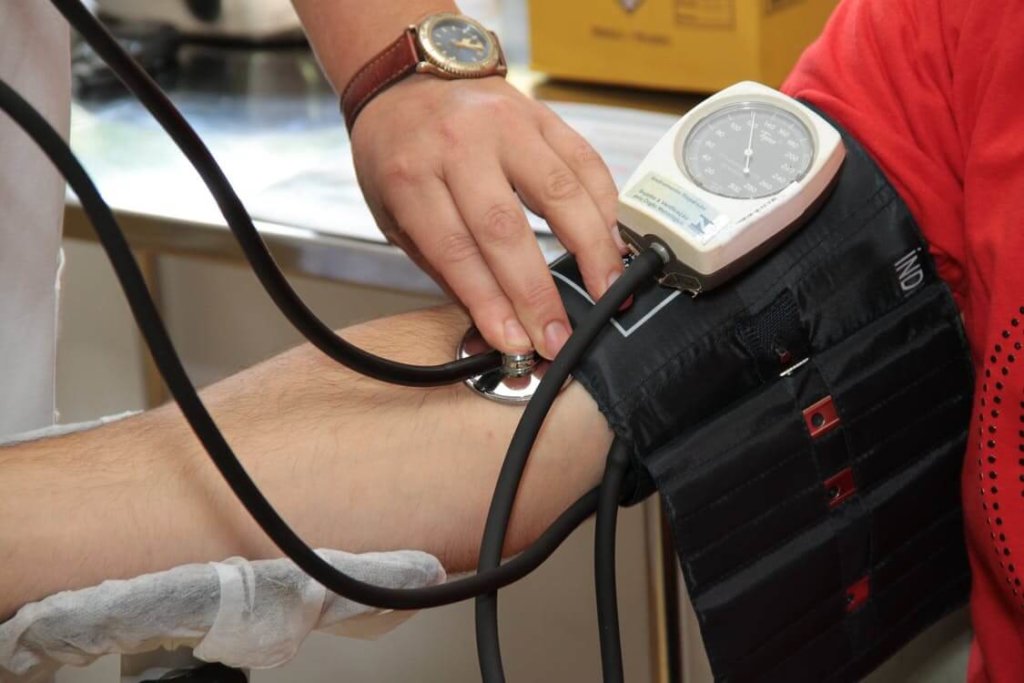We can do something about Vermont’s health care crisis
Legislative leadership has already laid out their agenda for this session. Despite the dire state of health care for the almost half of Vermonters under the age of 65 who are “underinsured,” it is clear that they have no intention of doing anything meaningful to address the state’s health care crisis.
Underinsured is an abstract idea that is easy to dismiss, but it has serious, potentially deadly real-life consequences. The underinsured have two alternatives when they are sick:
- Delay care and risk their health
- Pay for care and risk falling into debt, getting evicted, etcetera.
Delaying care can cost them dearly. Two examples:
- A diabetic with a huge deductible fails to get routine checkups and ends up needing a foot amputation
- A person with a high fever and shortness of breath waits days to seek care and dies of bacterial pneumonia
 The other alternative, paying for care you can’t afford, also costs them dearly. That’s how “around 30,000 Vermonters” ended up with medical debt turned over to collection agencies, while “tens of thousands more … are paying down medical bills” that have yet to be turned over to collections, according to state treasurer Mike Pieciak.
The other alternative, paying for care you can’t afford, also costs them dearly. That’s how “around 30,000 Vermonters” ended up with medical debt turned over to collection agencies, while “tens of thousands more … are paying down medical bills” that have yet to be turned over to collections, according to state treasurer Mike Pieciak.
If you want to see what medical debt does to your life, read over some of the stories collected by the state’s Health Care Advocate at vtmedicaldebt.org. Medical debt has dramatic effects on these people’s lives, from ruined credit to skimping on food to postponing retirement. It goes without saying that these people avoid getting future medical treatment for fear of running up even more debt.
This kind of deciding between a rock and a hard place goes on every day in Vermont. It amounts to the worst, most unfair kind of health care rationing. Why do we allow it? Here are the excuses we hear from some of our legislators:
Excuse No. 1: Because Medicare and Medicaid are federally directed, we can’t change the rules they have in place.
This is simply not true. Waivers of federal rules are very common in Vermont and other states. In Vermont, the Vermont Homeowner Assistant Progam, Dr. Dynasaur, and the All Payer model and the ACO running it all operate under waivers of federal rules. And anyone watching the recent circus in Washington knows that we cannot expect a national universal health care system anytime soon.
Excuse No. 2: We don’t have enough primary care clinicians and expanding coverage would just make this worse.
Again, not true. Implementing universal primary care would be a magnet drawing primary care clinicians to this state. Including all patients in one program, with one set of rules and regulations rather than hundreds they now face, would vastly reduce the amount of time and effort they are forced to spend on administrative tasks. Few people outside the medical profession appreciate how heavy that burden is now: 15.9 hours a week for family medicine doctors, according to a 2020 survey.
Excuse No. 3: It is too expensive to expand coverage to everyone.
In fact, we already spend more than enough to provide comprehensive care to all Vermonters. That has been shown in study after study. Administrative costs eat up 34% of what we now spend and half of that is not necessary—pure waste. Implementing a universal system would save massive amounts; as much as $1 billion, according to some studies.
Excuse No. 4: We need to address cost of care before expanding access.
The truth is that we will never be able to make health care affordable until we implement a universal access system. First, keeping people out of the current system is administratively very costly, as discussed above. Second, our current system encourages delayed care which ends up costing more because people get sicker during the delay.
Note that these arguments against needed reforms are generalities while avoiding real reform inflicts very specific and extensive damage on a large portion of Vermonters.
Everyone agrees that health care needs to be fixed. Admittedly it is a gargantuan task to try and fix the whole system at once. After all, health care is nearly 20 percent of the Vermont economy with big, entrenched “stakeholders” who exercise considerable influence over what legislation gets “moved” in the legislature.
So why not start with a smaller piece: Universal primary care. That makes primary care — including mental health and substance use disorder services — a public good like police protection and firefighting. Commercial insurers would no longer have to pay the cost of primary care, and premiums would be reduced accordingly.
Universal primary care is a small but important piece of the answer. It comes with a small price tag for taxpayers — less than six percent of total spending — and that is offset by lower premiums. But it would make a big difference; everyone needs primary care, even healthy people.
Make no mistake, this legislation is within the power of the Vermont legislature. Ask your legislators to support universal primary care.
(Deborah Richter is a practicing family physician in Cambridge. She lives in Montpelier.)
